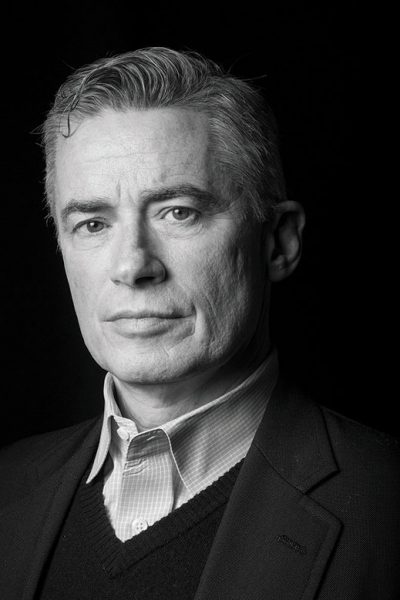
Jim McGreevey sometimes invokes Abraham Lincoln’s first Inaugural Address when explaining the work he does with newly released prisoners as chairman of the nonprofit New Jersey Reentry Corporation.
It’s always a challenge, says McGreevey, to seek “the better angels of our nature.”
McGreevey is speaking from his car on the way to Newark-Liberty International Airport, where he is to meet a group of formerly incarcerated women selling handmade bracelets in Terminal B. It’s typical of the work he does these days.
If we all were in touch with our better angels, we might be less inclined to think of McGreevey as the former governor who admitted to having an adulterous affair and being “a gay American” in 2004, and more apt to think of him as what he is now: an effective untangler of knotted lives.
Clifford Holland’s, for example. “I spent 14 years in prison. Coming here lets me know I’m not the only one who believes I deserve a second chance,” says Holland, an NJRC client who meets regularly with McGreevey and other staffers to plot his reentry into society at the Greater Newark Conservancy, one of five NJRC offices. Others are in Jersey City, Paterson, Kearny and Toms River. The program, he says, “keeps me pushing forward. I’m grateful for the support system.”
NJRC services include referrals for addiction recovery; communal, sober housing (“it’s almost like an extended family,” says McGreevey); employment training or school enrollment; legal assistance (obtaining IDs and clearing up outstanding warrants for small offenses); and a link to health care.
“We have a program strongly grounded in consistency, accountability and returning people to productive employment,” says McGreevey.
By early indications, it’s working. From September 2015 to August 2016, 63 percent of the nonprofit’s almost 1,200 clients found work with NJRC’s help at businesses including FedEx, Macy’s and New Jersey Transit. (The women McGreevey was on his way to meet at the airport are part of an NJRC partnership with SameSky, a nonprofit that empowers Rwandan women, and now women in Jersey City, with micro-loans to generate income through their craft.)
McGreevey says it’s not uncommon for clients to get kicked out of the program. Anyone who’s using drugs gets a warning. If there is a second infraction, he or she is out. Koufos is generally the one who lowers the boom.
After his own fall from grace, McGreevey, 59, received his masters in divinity from General Theological Seminary in New York and started a new life working with substance abusers at Integrity House in Newark. He does not shrink from his past.
“I was a closeted gay man, and I resigned in disgrace,” he says after addressing Holland and a handful of other clients who came to the NJRC office for a hot lunch. “Suffering is part of who we are as humans. But I’m a good example: We can recreate the narrative of our lives.”



